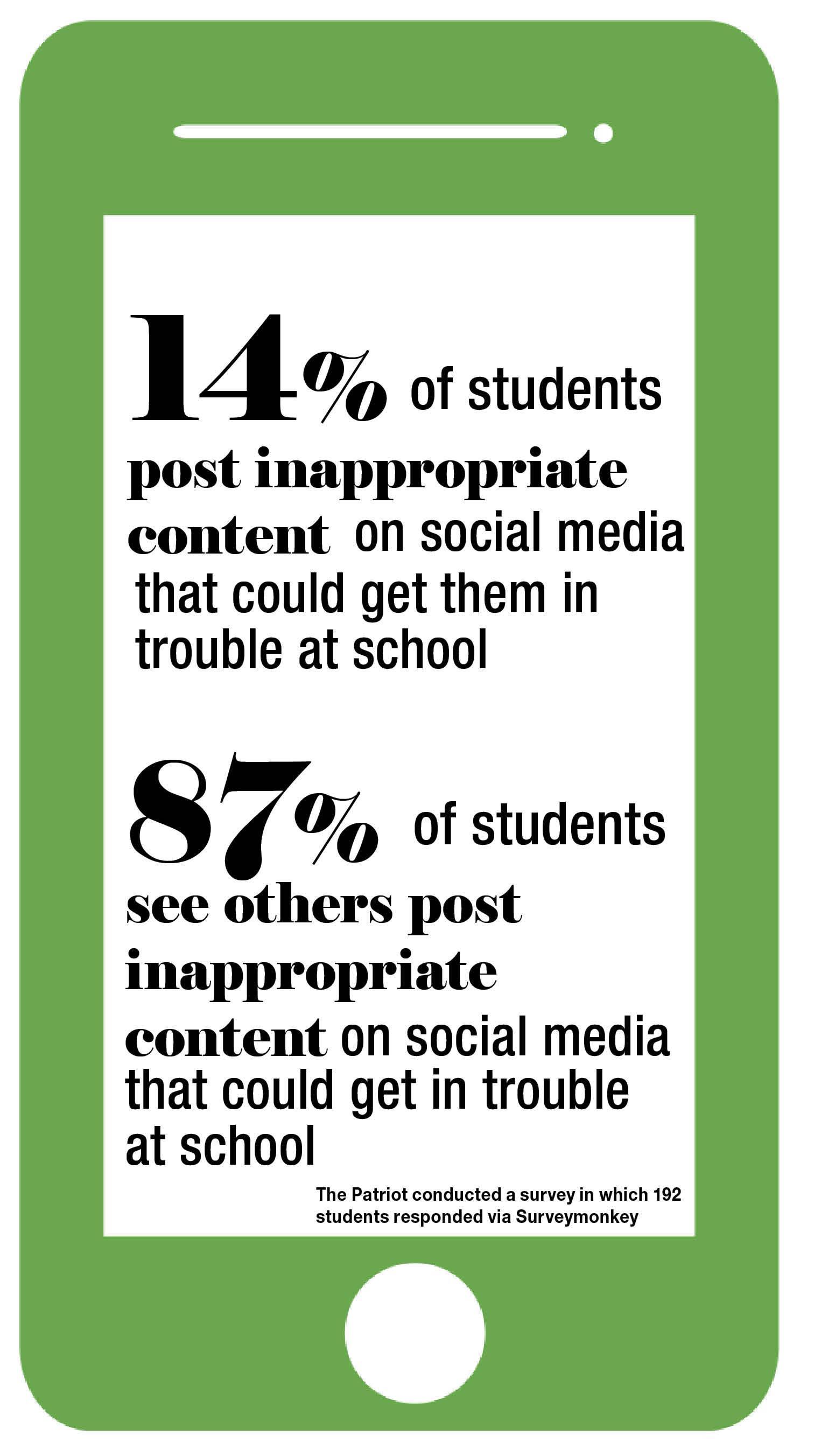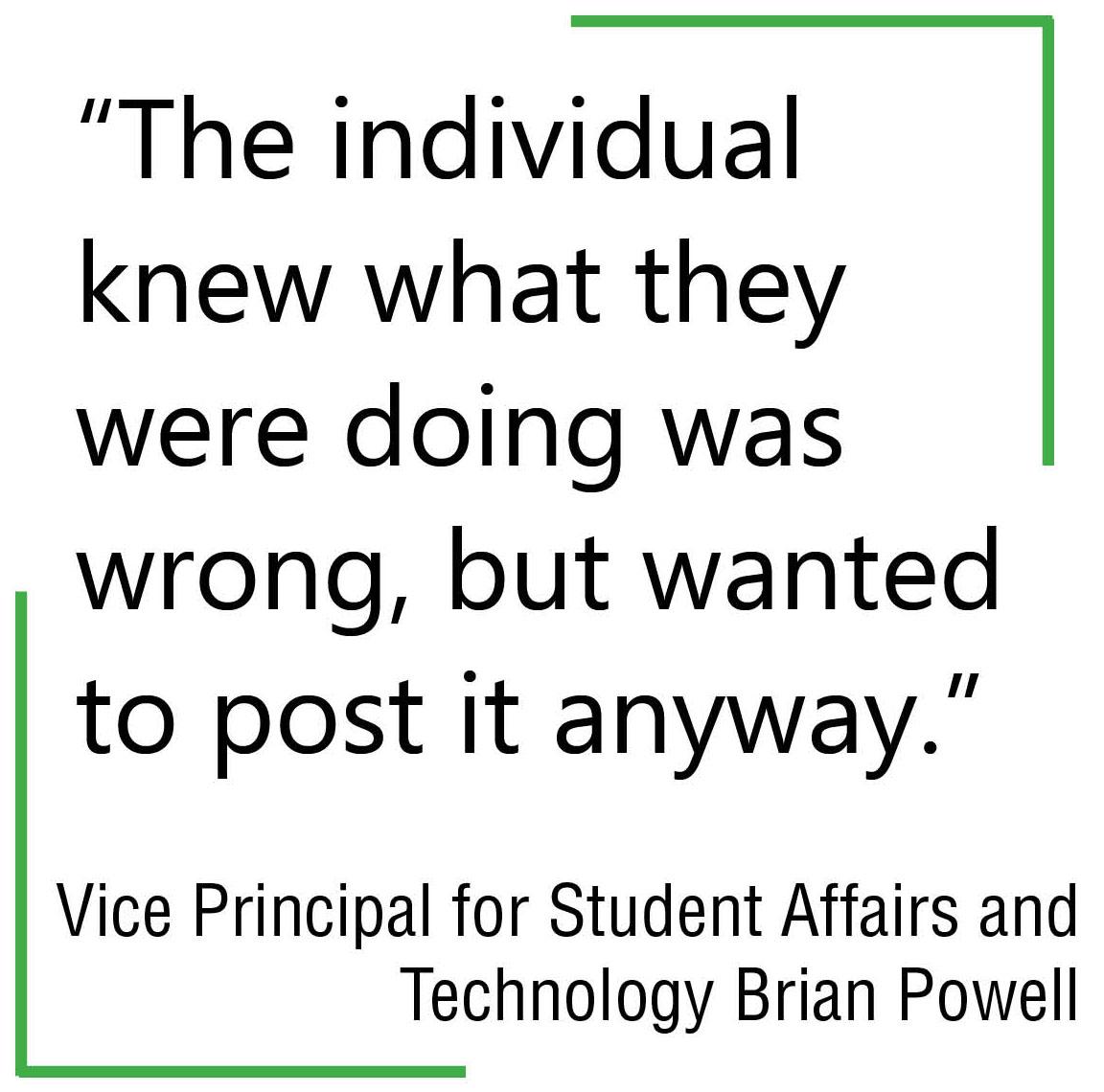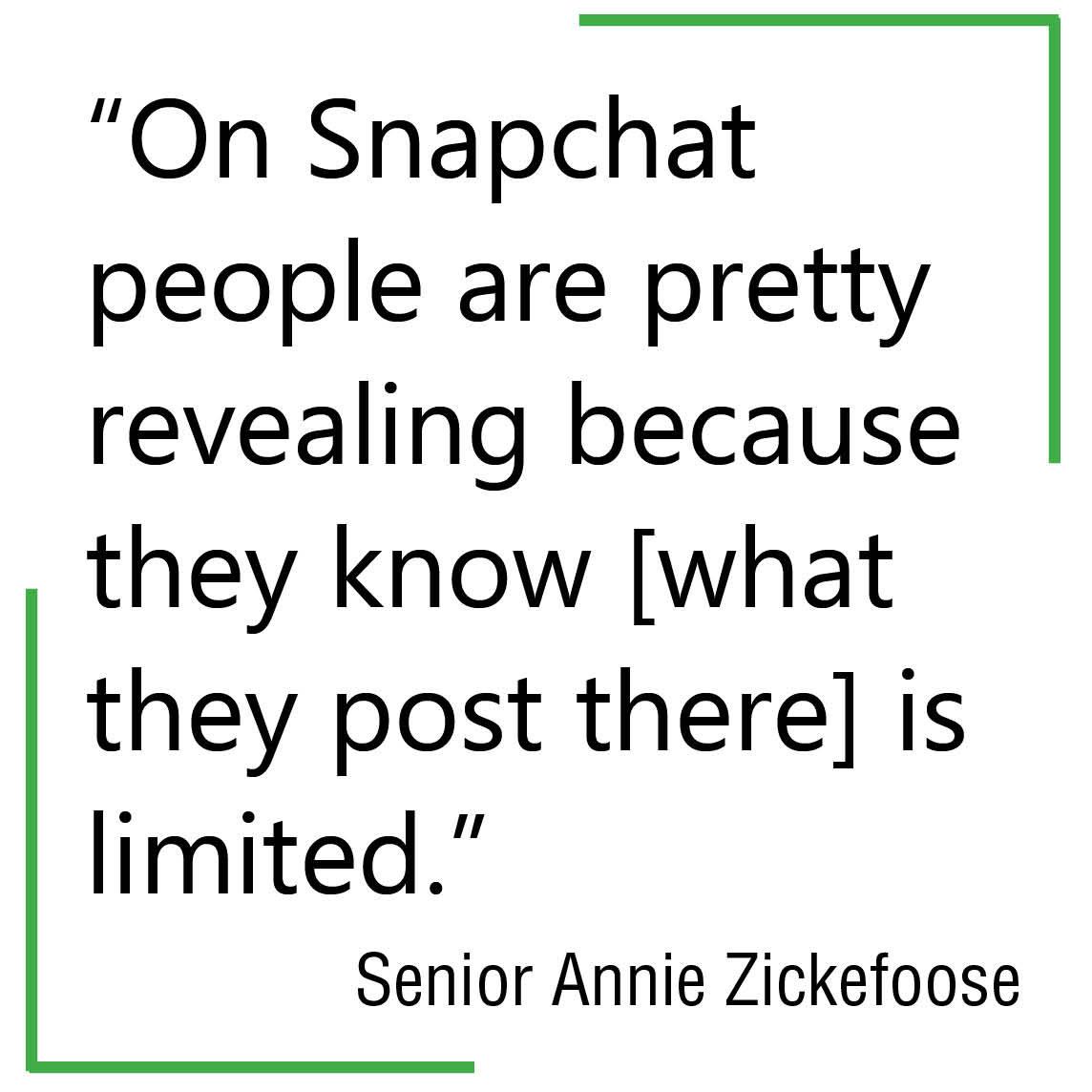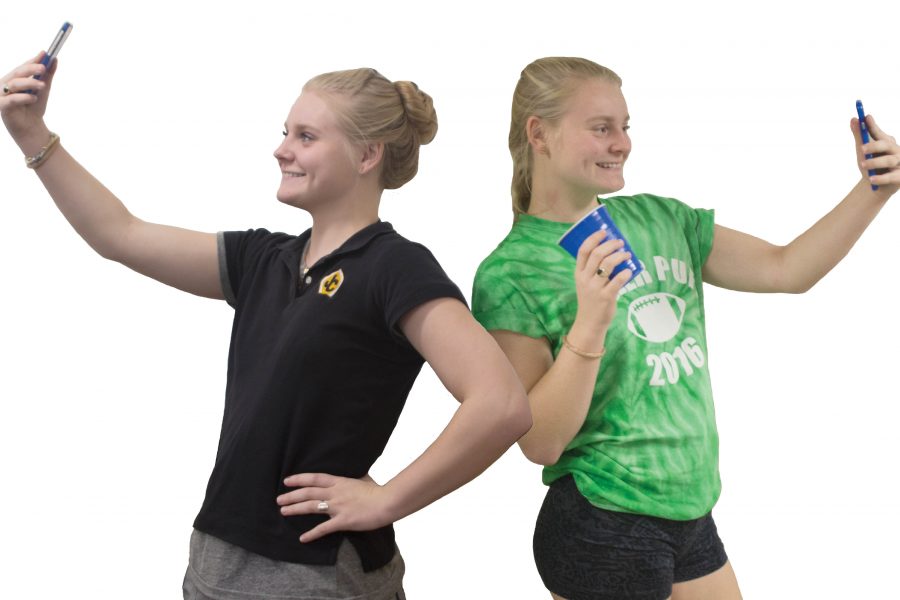Double standards
The content of students’ posts online depends entirely on their social media…
A group of students crane their necks to stare at one phone, anxious to see their classmate’s latest Snapchat story: a video of two students making out. Their classmate may have thought the video was private, but she was wrong: five people unauthorized to see her account have now seen her “secret” social media.
 This scene is familiar to most students. Screenshots and posts from “private” social media accounts change hands every day. While the creators of these posts may think their target audience is a small handful of friends, in reality these posts, often full of
This scene is familiar to most students. Screenshots and posts from “private” social media accounts change hands every day. While the creators of these posts may think their target audience is a small handful of friends, in reality these posts, often full of
incriminating material, find their way into the eyes of the public. One glance at VSCO and you’ll find an abundance of pictures of students passed out drunk, high, or practically naked.
Switch over to Instagram and you’ll find a different quality of posts. You’ll see the same people posting innocent pictures with completely clothed friends or maybe an artsy photo of the sky. These posts, and those on platforms such as Twitter and Facebook, show a more tempered side of students.
Students are actively involved with social media platforms like Instagram, Twitter, Snapchat, and VSCO. However, some students have a tendency to overshare, leaving their private lives exposed, despite their best efforts to keep them behind closed doors.
 According to a survey conducted by The Patriot, 87 percent of students see others post things that could get them in trouble at school. Students post these incriminating things because of the way they perceive the various levels of privacy of each form of social media. In the eyes of most students, some forms of social media are inherently more private than others.
According to a survey conducted by The Patriot, 87 percent of students see others post things that could get them in trouble at school. Students post these incriminating things because of the way they perceive the various levels of privacy of each form of social media. In the eyes of most students, some forms of social media are inherently more private than others.
Students are more likely to post private, potentially incriminating posts on VSCO and Snapchat. “People tend to put more revealing things on VSCO, [but] I have also seen drug paraphernalia on Snapchat,” junior Jordan Wrzesien said.
Overall, students find that the most inappropriate posts end up on Snapchat. “On Snapchat people are pretty revealing because they know [what they post there] is limited. It’s temporary and to a more direct audience. Plus, you can see if someone takes a screenshot and who has seen it,” senior Annie Zickefoose said.
Students who responded to the survey agreed with Zickefoose. According to student respondents, students are more likely to post private content not intended for public view on Snapchat than any other form of social media.
 These pictures, and other more incriminating posts, don’t appear on students’ correlating Instagram and Twitter accounts because those platforms have been deemed “public” by students.
These pictures, and other more incriminating posts, don’t appear on students’ correlating Instagram and Twitter accounts because those platforms have been deemed “public” by students.
“People post less incriminating things on Instagram because more people look at Instagram. They post less incriminating things on Twitter and Instagram because it’ll get reported if it is on there,” senior J.P. LaPonzina said.
Despite the seemingly confidential nature of these platforms, “private” posts can end up in the wrong hands. Even if students put content on sites they deem private, it can find its way to the hands of administrators like Vice Principal of Student Affairs and Technology Brian Powell. Students then suffer consequences.
Even content like Snapchat stories, which seem unsaveable to some students, have found their way to administrators. “Everything links back to you,” Powell said.
Powell believes students’ attempts to hide their activities on certain social media platforms shows more about their character than anything else. “I think [trying to post private content on certain social media] shows poor character. The individual knew what they were doing was unacceptable but wanted to post it anyway,” Powell said.
This is not the community’s first introduction to the idea of secret social media. In November of 2008, students were suspended for posting pictures of themselves drinking and smoking on Facebook. These students thought their accounts were private, but parents found these pictures and turned them into the administration.
Religion teacher Thomas Vierheller was the Dean of Students at the time. “I don’t think students have [learned from other students’ mistakes], but I think that they learned other tactics [to post inappropriate things online],” Vierheller said.
Powell reiterates to students the importance of watching what you put online. “Nothing is private on social media,” he said.
Grace Mottley is an Assignment Chief for The Patriot and jcpatriot.com



